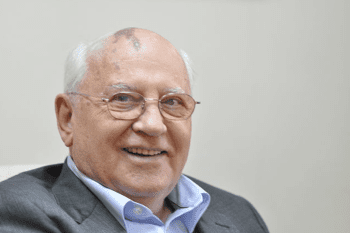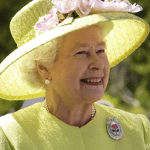Mikhail Gorbachev, the last leader of the former Soviet Union from 1985 until 1991, died at the age of 91. Russian state news agencies reported that Gorbachev died after a long illness. According to RIA Novosti, the Central Clinical Hospital said, “Mikhail Sergeevich Gorbachev died this evening after a severe and prolonged illness.”
The man credited with introducing critical political and economic reforms to the USSR and helping to end the Cold War had been in failing health for some time. Russian President Vladimir Putin expressed his condolences, Putin’s spokesman, Dmitry Peskov, told RIA Novosti. Other world leaders also expressed their condolences, with President Biden calling him “a man of remarkable vision” in a statement.
Gorbachev was born into a peasant family on March 2, 1931, near Stavropol. As a boy, he did farm labor along with his studies, working with his father, a combine harvester operator. In later life, Gorbachev said he was “particularly proud of my ability to detect a fault in the combine instantly, just by the sound of it.”
He became a member of the Communist Party in 1952 and completed a law degree at Moscow University in 1955. It was here that he met, and married, fellow student Raisa Titarenko. During the early 1960s, Gorbachev became head of the agriculture department for the Stavropol region. By the decade’s end, he had risen to the top of the regional party hierarchy.
He came to the attention of Mikhail Suslov and Yuri Andropov, members of the Politburo, the principal policy-setting body of the Communist Party of the Soviet Union, who got him elected to the Central Committee in 1971 and arranged foreign trips for their rising star.
In 1986, face to face with American President Ronald Reagan at a summit in Reykjavik, Iceland, Gorbachev made a stunning proposal: eliminate all long-range missiles held by the United States and the Soviet Union. It was the beginning of the end of the Cold War. He was awarded the Nobel Peace Prize in 1990 “for his leading role in the peace process which today characterizes important parts of the international community.”

However, Gorbachev’s agreement with the United States angered some old-school Communists. In August 1991, while Gorbachev was on vacation in Crimea, some staged a revolt. Boris Yeltsin, the president of the biggest Soviet republic — Russia — and a fierce critic of what he considered Gorbachev’s halfway reforms, nevertheless came to his rescue, facing down and defeating the coup plotters. Still, Gorbachev resigned as president on Christmas Day in 1991.
In an interview with CNN in 2019, Gorbachev said the US and Russia must strive to avoid a “New Cold War” developing despite worsening tensions. “This might turn out to be a hot war that could mean the destruction of our entire civilization. This must not be allowed,” he said. When asked about the demise of the 1987 treaty he signed with Reagan, Gorbachev expressed hope that such arms control agreements could be revived.
Gorbachev’s post-USSR life also included some surprises as he worked to raise money for his causes with appearances in advertisements for Pizza Hut and Louis Vuitton. But in the end, Gorbachev was a leader more respected in other countries than at home. Some Russians condemned him for destroying the Soviet empire, and others for moving too slowly in freeing his nation from the grip of communism. In the West, however, he remains the Nobel Peace Prize winner who helped end the Cold War.


